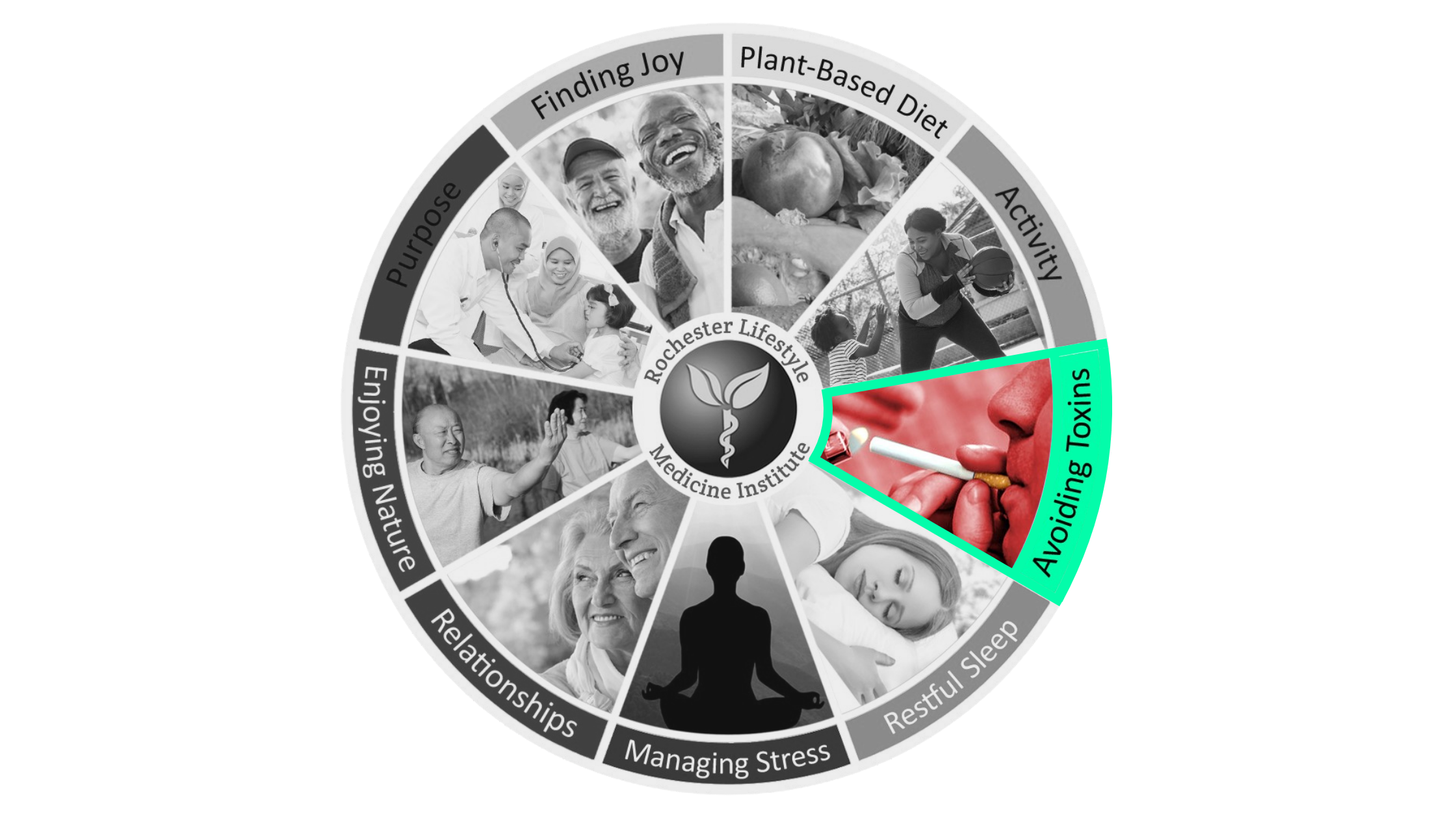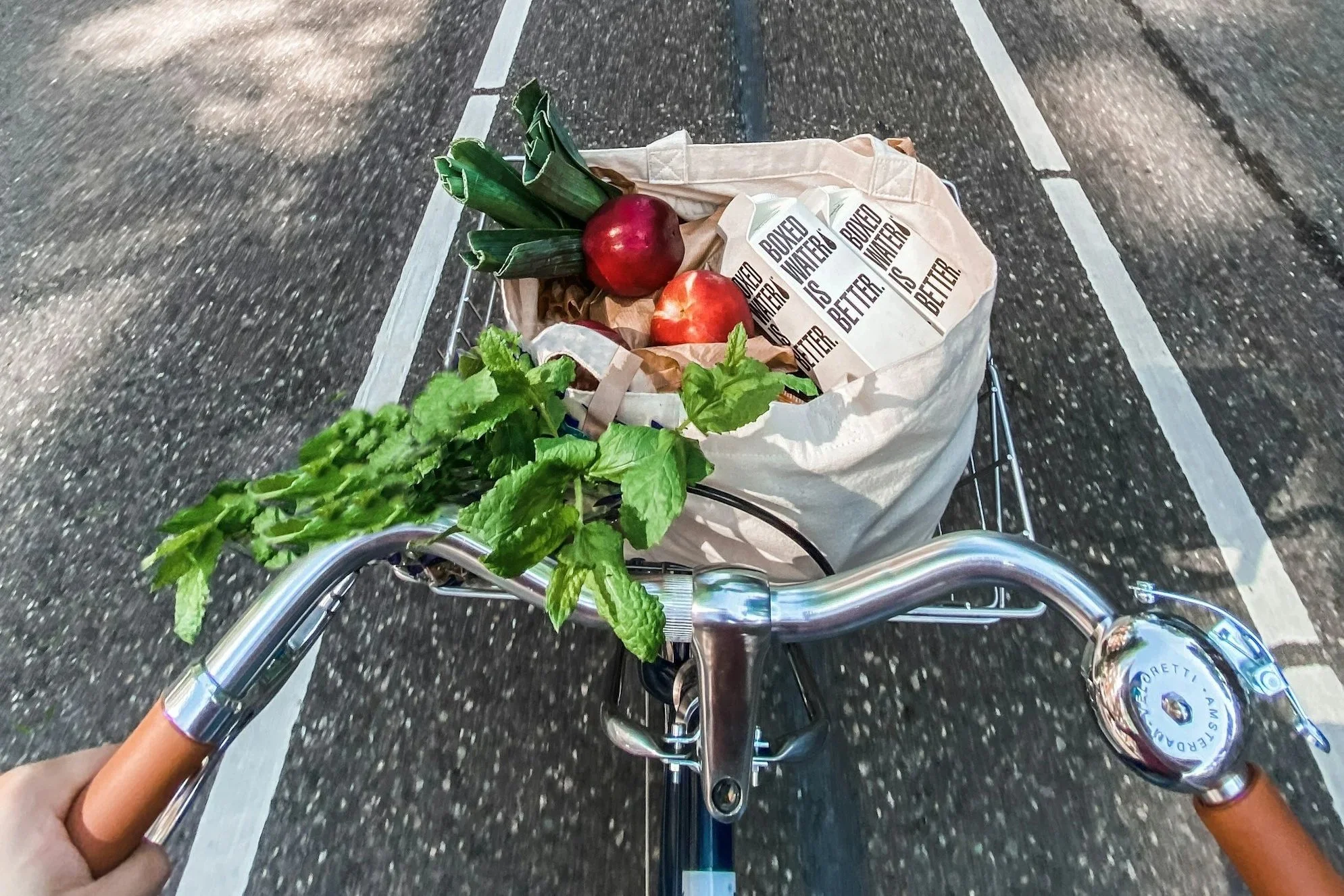How to Avoid Toxins for Better Health
The Third Pillar of Lifestyle Medicine
Key Takeaways
The Avoidance of Toxins is the third pillar of Lifestyle Medicine, as defined by the American College of Lifestyle Medicine (ACLM) and practiced at Rochester Lifestyle Medicine Institute (RLMI).
Avoiding addictive substances like tobacco, alcohol, and opioids—and reducing exposure to environmental toxins—helps prevent and even reverse chronic disease.
Everyday choices, from food to cleaning products, can significantly influence toxin exposure.
A whole-food, plant-based lifestyle supports your body’s natural detoxification systems.
Clean air, clean water, and a toxin-free environment are essential not just for personal health, but for planetary health and future generations.
A Note from Dr. Veggie
While it may seem obvious, it is extremely important to acknowledge the harm that is caused by opioids, alcohol, tobacco, vaping, and other inhaled, injected, and ingested non-food substances.
While you may be among those fortunate enough not to be under the control of addiction, we all need to recognize that there are many toxic substances that we are exposed to in our environment and food supply that are not under our direct control. Let’s all consider what role we can play in helping to ensure that there is clean air, clean water, and uncontaminated food for all alive today and for future generations.
— Ted Barnett, MD, FACLM (“Dr. Veggie”)
What Are Toxins and How Do They Affect Health?
In the context of lifestyle medicine, toxins refer to substances that can cause harm to the body when inhaled, ingested, or absorbed through the skin. These may come from:
Addictive substances such as alcohol, nicotine, or opioids
Processed and contaminated foods
Air and water pollution
Industrial and household chemicals
Long-term exposure to toxins can increase inflammation and oxidative stress—key drivers of chronic diseases such as heart disease, diabetes, and certain cancers.
How to Reduce Toxin Exposure in Daily Life
Reducing toxin exposure doesn’t require extreme measures. Small, intentional actions can make a meaningful difference over time.
Start with these practical steps:
Avoid or limit alcohol and tobacco — two of the leading causes of preventable disease.
Choose whole, plant-based foods — plants help the body detoxify naturally through fiber, antioxidants, and phytonutrients.
Use non-toxic cleaning and personal care products when possible.
Filter your water — a simple filter can remove harmful contaminants like lead and chlorine.
Ventilate your home — open windows or use HEPA filters to reduce indoor air pollution.
Be mindful of plastics — avoid heating or storing food in plastic containers.
Support community and environmental health — advocate for clean water and reduced pollution in your area.
Can a Plant-Based Diet Help the Body Detox Naturally?
Yes — and it’s one of the safest, most sustainable approaches to supporting your body’s natural detox systems.
A whole-food, plant-based (WFPB) lifestyle provides the antioxidants, fiber, and nutrients your body needs to neutralize and remove toxins through the liver, kidneys, lungs, and skin.
Unlike trendy “detox” products or restrictive cleanses, a plant-based diet enhances what your body is already designed to do:
Support liver function
Promote gut health and elimination
Reduce inflammation and oxidative stress
Protect cells from environmental damage
Take the Next Step
Avoiding toxins is about more than removing harm; it’s about building a healthier environment for your body and your community. Combined with the other pillars of Lifestyle Medicine, these small steps lead to lasting change.
Join the RLMI Community → Access live support meetings, discussion groups, and premium content.
Explore our 15-Day Whole-Food Plant-Based Jumpstart → A guided, evidence-based program to help you reset your health and experience the benefits of Lifestyle Medicine.





